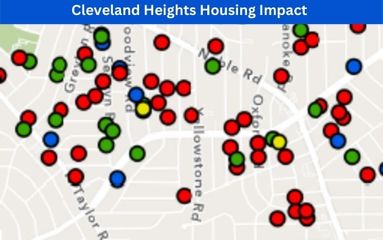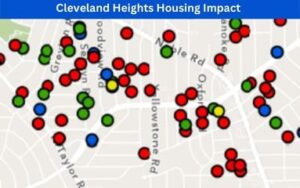Rebounding Housing in Cleveland Heights


Nearly every community in Cuyahoga County has experienced the devastating effects of the mortgage foreclosure crisis, resulting in increased vacancy, blight, and abandonment across our region. Unfortunately, the vibrant city of Cleveland Heights is no exception.
However, over a decade later, the city and its real estate market have rebounded thanks to concerted efforts by the city, the Cuyahoga Land Bank, Community Development Corporations, and other community-based nonprofit organizations.
“Cleveland Heights’ leadership has long made housing a top priority,” says Ricardo Len, Chief Operating Officer at the Cuyahoga Land Bank. “By leveraging the Land Bank’s innovative programs, identifying responsible homeowners and rehabbers, and collaborating with community-based organizations, nearly 200 distressed properties in Cleveland Heights have been restored to the tax roll.”
The Cuyahoga Land Bank’s research team recently developed a map that illustrates the overall impact of the Land Bank’s work in Cleveland Heights.
“The Cuyahoga Land Bank has been an indispensable partner for inner-ring suburbs like Cleveland Heights, helping revive homes and stabilize neighborhoods following the housing crisis and setting the stage for growth in our community,” says Cleveland Heights Mayor Kahlil Seren.
See the full impact map HERE.